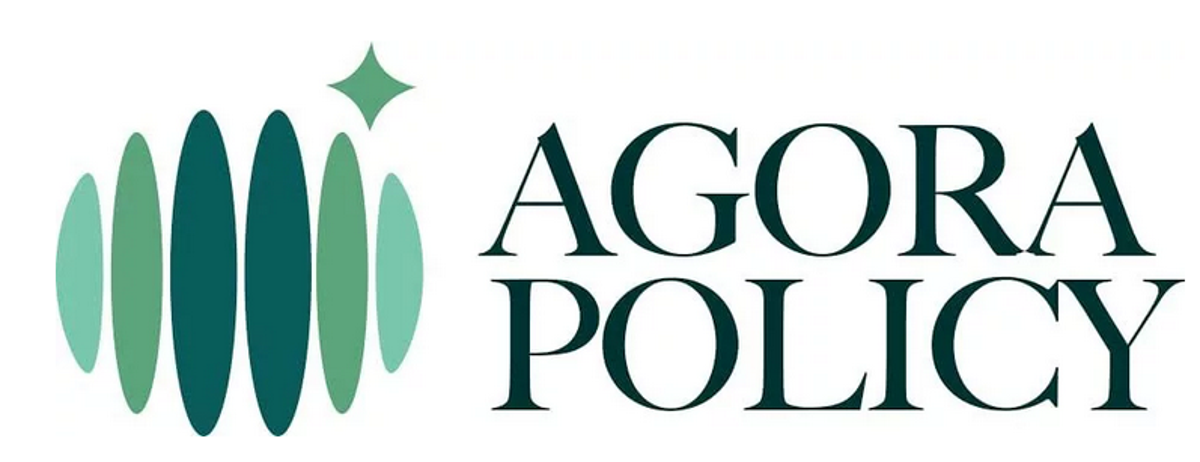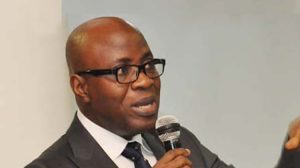By Business A.M.
- Wants fortification of anti-corruption measures
A Nigerian think tank, Agora Policy, is raising questions about Nigeria’s transparency and accountability measures put in place since the beginning of Nigeria’s return to democracy and specifically wants to see the fortification of the country’s anti-corruption measures.
In a new report, which is released today, Agora Policy is making specific recommendations, especially asking for presidential assent to the newly passed Federal Service Bill, integrity checks on heads of staff of organisations with anti-corruption mandates; disclosure of assets declared by public servants to Code of Conduct Bureau; improved resourcing and capacity building for anti-corruption agencies as well as enhanced checks and balances to ensure the watchdogs not mired in corruption; and national reorientation campaign to tackle values and attitudes that enable public corruption.
The report notes that transparency and accountability are fundamental to the actualisation of good governance and sustainable development, adding that despite the widespread perception about the prevalence of corruption in Nigeria, successive administrations over time have introduced many transparency and accountability measures to check the menace of corruption and enable good governance.

“There has been an uptick of these sunshine and restraining measures since the return of democracy in 1999. The surge has been attributed to demands of openness and accountability embedded in democratic practice as well as the increased interest and support by reformers, citizens, civic groups and development partners,” the authors wrote.
They stressed that as a new government prepares to come into place, “a stocktaking of the transparency and accountability measures is desirable. This is to ensure that the zeal for transparency and accountability is sustained and that the prevailing measures are fit for purpose, and further strengthened and institutionalised.”
The report further acknowledged that transparency and accountability measures are put in place to enthrone good governance in general and, specifically, to curtail corruption, described as the bane of Nigerian society. “Corruption,” it notes, “stifles development and imposes a high cost on individuals, businesses, and the country at large.”
In an executive summary made available to Business A.M. ahead of the release of the report, the authors state that Nigeria’s impressive array of transparency and accountability measures has not made the desired dent on governance and development in the country because of subsisting gaps in legislation, capacity, values and resourcing.
Aptly titled, “Imperative of Strengthening Nigeria’s Transparency and Accountability Measures,” the report makes a strong case for bridging these gaps and for sustaining and strengthening the various anti-corruption measures to make them more effective tools for deepening good governance, service delivery, shared prosperity and democracy in the country.
“Whether now or in the future, Nigeria needs more transparency and accountability, not less,” the report, produced with the support of MacArthur Foundation, states.
The report, written by a group of experts, examined 16 transparency and accountability mechanisms within four clusters, namely norms and values, public financial management, open disclosure, and sanctions. It also assessed measures such as asset declaration, freedom of information, public procurement, whistle-blower policy, annual and routine audits, government’s e-payment platforms (such as IPPIS and GIFMIS), publication of subnational transfers, disclosure of extractive sector revenues and beneficial ownership to prosecution and asset recovery.
According to the report, “most of the interventions have been made since the return to civil rule in 1999, and some of them have yielded some results and milestones,” adding that, “despite the achievements, the problem of transparency and accountability remains. The assumption that transparency and accountability automatically lead to good governance did not take into account attendant challenges such as social behaviours in the forms of resistance and sabotage.”
Other specific recommendations in the report include the call for the strengthening of the Office of the Auditor General of the Federation through improved staffing and better remuneration of the staff of the agency.
“While the Auditor-General of the Federation (AuGF) has a responsibility to eradicate corruption from Nigeria’s public finance system, this responsibility is limited to the extent that the country’s audit law permits,” states the report. “Nigeria needs a fresh law that guarantees independence and powers to sanction for the AuGF in line with established standards of the International Organisation of Supreme Audit Institutions (INTOSAI). Without the powers to sanction, the AuGF is more or less a toothless bulldog,” the report states.
The report seeks an amendment to Paragraph 3 (c) of the Third Schedule of the 1999 Constitution to ensure that assets disclosed by public officials can be made public by the Code of Conduct Bureau (CCB), and also argues for improved funding for CCB for the agency to be better positioned to discharge its important mandate, including the verification of assets declared by millions of public servants across the three tiers of government.
The report also calls for passage of laws to back up the whistle-blower policy and the Open Treasury Portal so as to address grey areas and make them more binding and effective.
It further calls on the government to “Undertake rigorous background checks on the boards, leaderships and staff of institutions with anti-corruption mandates and institute adequate safeguards on the exercise of oversight powers. These measures are needed to ensure that there is a symmetry between the mandates of these critical institutions and the values of those who work in and lead them, that there are measures for ‘watching the watchdogs’, and that the anti-corruption institutions are not undermined by the same ills that they were set up to tackle.”
Commenting on the report, Waziri Adio, the founder of Agora Report says: “This is a very timely report. At a moment of transition, there is a danger that the focus on anti-corruption may fade, especially given how anti-corruption barely registered as a major campaign issue during the 2023 elections. The report is an important reminder about the centrality of transparency and accountability to citizens’ welfare and the democratic project. It also underscores the heavy investments that Nigeria and its development partners have made in the transparency and accountability space over time, perhaps even more than in some advanced countries, and the need to ensure that these investments do not go to waste, that the country derives adequate returns on these vital investments.”









The art of doing nothing: Nigeria & The World